
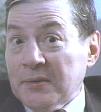 Herbert Stempel is no mere quiz show legend. The New York native, who was an acknowledged genius when he first stepped onto an NBC stage in 1956, is one of the most significant historical figures in the era of broadcasting. Herbert Stempel is no mere quiz show legend. The New York native, who was an acknowledged genius when he first stepped onto an NBC stage in 1956, is one of the most significant historical figures in the era of broadcasting.
Stempel was originally a willing participant in what was ultimately described by TV Guide as the "biggest black eye in the brief history of television." However, his decision to change course and go on a public campaign to blow the whistle on a deception which became known as the quiz scandals was a catalyst for judicial and Congressional investigations which forever changed the face of the industry. Stempel has been interviewed about his role in both the before and after of the scandals, by his own estimate, "about 10,000 times."
In 1993, director Robert Redford's "Quiz Show" focused on the battle between Stempel and his legendary counterpart Charles Van Doren on the NBC quiz Twenty-One. As characterized by John Turturro, the screen Stempel was characterized as a virtual cartoonish buffoon, far different than the man who remains far more articulate than the bulk of contemporary game show contestants. At 74, Stempel remains healthy, energetic, and with a mind which would likely be close to unbeatable in a match of wits on a television quiz. He reflects on his role in broadcast history and his feelings on the game show genre of today in this four-part interview with GSCC.
(c) 2001 By Steve Beverly
TVgameshows.net
No portion of this interview may be printed in whole or in part without the expressed written consent of Steve Beverly.
GSCC: Herb, because of your pivotal role in the quiz scandals, a lot of people may have the idea you're still a game show junkie, scrutinizing every question and every contestant, particularly with these million-dollar payoffs. How often do you watch?
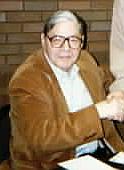 HERB: Very, very rarely. I really have lost interest. They've dumbed down th eshows so much because they have to have winners to attract an audience. I have much more to focus on in my life. I have eight grandchildren now and they happily take up a lot of my time. I've just stopped watching game shows and a lot of television, period. HERB: Very, very rarely. I really have lost interest. They've dumbed down th eshows so much because they have to have winners to attract an audience. I have much more to focus on in my life. I have eight grandchildren now and they happily take up a lot of my time. I've just stopped watching game shows and a lot of television, period.
GSCC: For many people, the world of Herb Stempel went into freeze-frame about 40 years ago when the Congressional investigations into the quiz scandals ended. What have you done since the scandals faded?
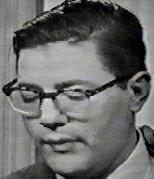 HERB: For several years, I worked as an office manager for a hosiery corporation. I received my doctorate in history and for many years, I taught social studies at the high school level. I have a wide knowledge of social studies. For several years now, I've worked for the Transit Authority in New York. I'm not an attorney but I appear in court for the transit system when accidents occur. I'm somewhat in the role of a court advocate. HERB: For several years, I worked as an office manager for a hosiery corporation. I received my doctorate in history and for many years, I taught social studies at the high school level. I have a wide knowledge of social studies. For several years now, I've worked for the Transit Authority in New York. I'm not an attorney but I appear in court for the transit system when accidents occur. I'm somewhat in the role of a court advocate.
GSCC: Before we begin going through the journey of your involvement in Twenty-One, let's cover something which we commented on here nearly two years ago. When NBC decided to bring back the show last year, we said the network should do something a bit unorthodox by bringing a bit of closure to the old story and bring you back as the first contestant. In my opinion, I still believe they missed a golden opportunity because writers would have been flooding the media with coverage. Were you ever approached about going on Twenty-One?
 HERB: Yes, in fact, I was. I got a call in November 1999 from Fred Silverman's co-producer Phil Gurin. He was a nice enough guy. He said, "We have discussed this and we feel you were treated unkindly. We'd like to have you come on. We'll be in touch." You know (game show agent) Fred Wostbrock. He thought it was a great idea and told them. HERB: Yes, in fact, I was. I got a call in November 1999 from Fred Silverman's co-producer Phil Gurin. He was a nice enough guy. He said, "We have discussed this and we feel you were treated unkindly. We'd like to have you come on. We'll be in touch." You know (game show agent) Fred Wostbrock. He thought it was a great idea and told them.
I'm represented by an agency and they were contacted by all the newsmagazines to interview me the night the new Twenty-One premiered. That night, Inside Edition and EXTRA both came and the people for those shows hate each other. It was amusing to watch them stare daggers at each other as they were crossing paths.
I had a call from a writer for the New York Post and the first thing he asks me is: "Tell me, who is the first mayor of New York." I said, "Thomas Ward....Robert Van Wyche was the second." They're always wanting to do that kind of thing. So, he asks me what I thought of the show. Well, I tell the truth. I said: "Frankly, it's very bad....very poor. They've dumbed it down and they're throwing out all sorts of assistance." I'm not going to compromise my integrity just to make everyone feel good. Everyone and his brother could see it. The set was awful and garish, the music was horrendous.  Maury Povich, to be honest, was a terrible host. He was throwing in all of those lines as he does on his talk show and it was irritating. He was a bad host. The whole thing was flat. It really had no excitement. Maury Povich, to be honest, was a terrible host. He was throwing in all of those lines as he does on his talk show and it was irritating. He was a bad host. The whole thing was flat. It really had no excitement.
Shortly after that, the people who represent me called up Gurin and said, "Are you going to have Herb on?" I never received a call. I had trashed the show so they didn't want anything to do with me.
GSCC: I still say they missed a golden opportunity but that show's in the past. Herb, we've seen the PBS documentary from 1991 on the scandals and Kent Anderson and Joseph Stone have written two excellent books on the subject. Take us back to how your association with this started. Were you hurting as badly financially as was indicated when you were on Twenty-One?
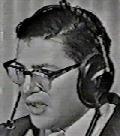 HERB: No. Absolutely not. I was born into a poor family and my father died when I was very young. I spent seven years in the service. HERB: No. Absolutely not. I was born into a poor family and my father died when I was very young. I spent seven years in the service.
However, at the time I went on the show, I was a newlywed. I was married to my first wife, Tobie, who passed away a number of years ago. My wife's family was a fairly wealthy one and, unlike what was scripted for Twenty-One, I was not struggling to pay for my next meal when I was attending the City College of New York.
The only real struggle I was having was my mother-in-law was one of these who was trying to control every move we made and I was determined to be independent. I wanted to earn some money on my own to get out of being dictated to by my in-laws.
A friend of mine suggested I go down and take the test for a quiz show. I went down and took the test and it was a very difficult examination. I scored 363---which was the highest score ever. I met Dan Enright and he told me to go home.
Then, as you saw on the documentary, Enright came to my home and said, "How would you like to make $25,000?" I did say to him, "Who wouldn't want to make $25,000?" He began to describe for me what he had in mind and said, "Play ball with me and you'll make that much money and probably a lot more."
GSCC: Did you know at that moment he had in mind fixing the show?
HERB: No, I did not. It was not until I went down to his office later that he explained to me how the entire process worked. Remember, none of this was illegal. There was no law against this as there is now. The way he explained it, this was all entertainment, just the way he told all of the other contestants he auditioned.
I wanted to go on honestly, because with the score I'd ended with on the test, I was very confident I could go on and answer all the questions without his help. He explained to me that I couldn't do that, because I would knock off everyone they would send against me. So, that's when I learned about how all of this was to be staged---a series of tie games to add excitement and carrying the games out over a period of weeks.
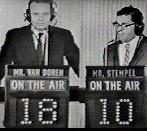 GSCC: I have your match against Charles Van Doren on tape and, of course, we saw a liberal amount of your appearances in the PBS special. How much of what we saw on the show was the real Herb Stempel? GSCC: I have your match against Charles Van Doren on tape and, of course, we saw a liberal amount of your appearances in the PBS special. How much of what we saw on the show was the real Herb Stempel?
HERB: Very little. They talk about so much "reality television" today and very little of it is reality. Not much of what you saw bore any resemblance to reality. The hardest thing I found about the whole experience was I was not allowed to be myself. Everything I did was written on continuity cards. Everything from how to mop your brow to when to bite your lip to when to skip parts of a question.
He ordered me to wear that awful double-breasted suit, to let my hair grow. Enright tried to make me look like a human computer. I've always had a sense of humor but I was not allowed to show that on the air. I was an actor. I wasn't even a game show contestant.
GSCC: Were you coached every week before you went onto the show?
HERB: Yes. I would go to Dan Enright's office every Wednesday afternoon and he would go over the instructions for that night's show (which aired at 8:30 p.m. in the East and went live to the Eastern and Central time zones). There was not one single item in the show which was not rehearsed with a fine-toothed comb.
One week, I went in and Enright had spotted some things he felt I had not done properly the previous week and he said, "Herb, you're not paying attention to your lessons."
GSCC: My major professor at the University of Georgia served a lot of the subpoenas for the grand jury investigation and spent a lot of time with you during that period.
HERB: Oh, yes, Bill Martin. Nice fellow. I remember him well.
GSCC: Bill passed away a few years ago. But while I was in college, he confirmed for me something which I read later in Kent Anderson's book. I'd like to hear this from you. Until you began going public, do you think Jack Barry---even as Enright's partner---did not know what was going on with the riggings?
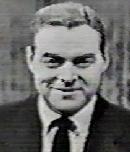 HERB: I think that's a fair assumption while I was on the show. You have to remember this. Barry and Enright were business partners but Enright was the producer and the businessman. Jack was the front man. He was the personality who sold the shows on the air. He'd done nightclub comedy and continued to do that while he was emceeing the show. HERB: I think that's a fair assumption while I was on the show. You have to remember this. Barry and Enright were business partners but Enright was the producer and the businessman. Jack was the front man. He was the personality who sold the shows on the air. He'd done nightclub comedy and continued to do that while he was emceeing the show.
The day I began to suspect something was when we were, as I've said, "going over my lessons" one Wednesday afternoon. Enright had all of the script and the stage directions in a briefcase. We were going over things and, all of a sudden, Jack comes into the room. Enright slammed the briefcase shut. Jack came in, stayed a few minutes, had a brief conversation with Enright and wished me well on the show that night. I asked Dan, "Hey, doesn't Jack know about this?" He responded very abruptly and suggested there were some things I didn't need to know. So, in answer to your question, Barry never got involved in the day-to-day producing of the show and never sat in on any of the rehearsals with Enright.
In Part 2, Herb Stempel tells the story of his early success on Twenty-One and sets the scene of when Charles Van Doren changed his fortunes.
Back to Homepage
Allen Ludden
Art James
Wink Martindale
Tom Kennedy
Dennis James
George DeWitt
Jack Narz
Monty Hall
Jay Wolpert
Game $how Page
 Game Show Network
Game Show Network


|
|




 Game Show Network
Game Show Network

